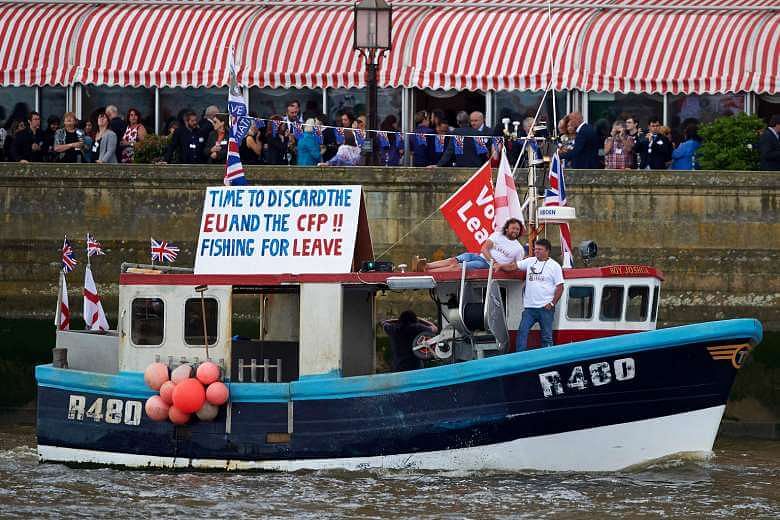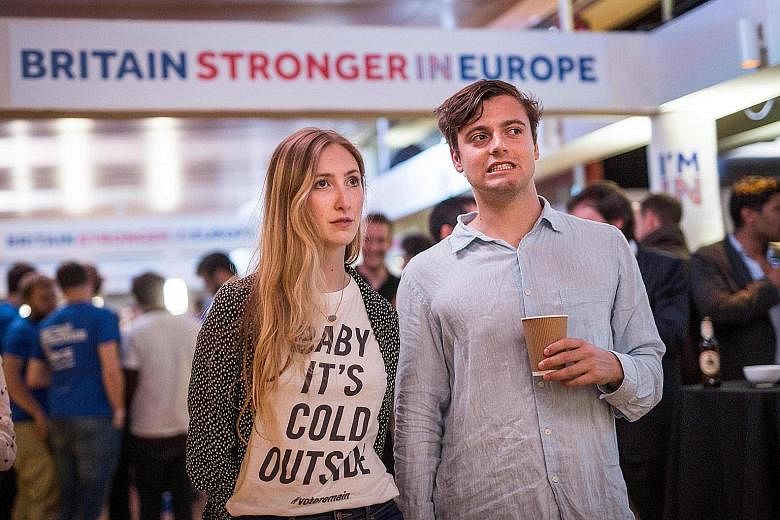Great Britain, a superpower that once commanded the largest empire the world has ever known, has walked out of its own backyard.
In a referendum on June 23, 52 per cent of voters decided that Britain should withdraw from the European Union, a 28-country economic and political partnership that it has been a part of since 1973.
As the referendum's result became increasingly clear at lunchtime here on June 24, people in Singapore - once one of Britain's many colonies, from 1819 to 1963 - grappled with the surprising news.
A reeling Britain is now facing some hard truths about Brexit.
Both major parties in the country suddenly found themselves mired in a crisis of leadership. Financial markets tumbled. Banks talked of moving some operations abroad.
Uncertainty descended as there is no immediate timetable for the British exit to go ahead.
Outgoing Prime Minister David Cameron, in announcing his resignation, refused to kick-start the withdrawal process himself, leaving it to his successor.
Why did Britain, the epitome of steadfastness with its famous 1939 poster, Keep Calm And Carry On, take the drastic step of overturning more than 40 years of a status quo that has been credited with stabilising the European continent?
What is the significance of Brexit to Singapore, a nation at the forefront of championing free trade?
Singapore and Britain are island nations, but both look set to be on different trajectories, as one today remains part of a regional, trade-based grouping without political strings - Asean, while the other, at least according to the shock referendum result, has had enough of being part of a deeply integrated supra-national bloc.
The Sunday Times looks at five political and socio-economic takeaways for Singapore from Brexit.
Disconnect between ordinary people and leaders

Part of this disconnect is tied to the historical class divisions in much of British society and politics, and to how the metropolitan and mobile British middle-class has benefited much more from European Union (EU) membership than the working classes in the heartlands.
Swathes of supporters of the left-wing Labour Party ignored their official party line and now- beleaguered party chief Jeremy Corbyn, who had campaigned (half-heartedly) for Remain.
'Freak result' and buyer's remorse
Hours after Britain's referendum results confirmed it was heading out of the European Union, "buyer's remorse" started to surface in TV interviews among Leave voters.
One woman voter was clearly reeling from the harsh reality of the consequences. She insisted she would now vote Remain, if she had a second chance.
Another voter told the BBC he was shocked that Prime Minister David Cameron, who campaigned hard to remain in the EU, was stepping down. "The David Cameron resignation has blown me away, to be honest," he said.
That feeling of regret the morning after

His answer: "I think people in this country have had enough of experts."
The referendum result went Mr Gove's way, as popular resentment of elites ruled the day.
Too many immigrants, too quickly

As the European Union (EU) expanded in 2004 from 15 member states to include 10 more countries - mostly poorer ones from Eastern Europe - then Prime Minister Tony Blair opened Britain's doors to job seekers from these countries.
Free to move to Britain to work, many from the new EU countries did, attracted by the prospect of better jobs or higher pay than back home.
Share growth pie to cushion costs of globalisation

The story being written? That the winners of globalisation chose Remain, the losers chose Leave.
The Telegraph newspaper's analysis of the results, for instance, showed that voters with less wealth and education backed Brexit.

